Indian Manufacturing: A View From The Shop Floor
A recent visit to Indian metalworking shops reveals a nation poised to elevate its position in global manufacturing.
While India’s IT industry typically gets the lion’s share of credit for the country’s emergence on the world economic stage, manufacturing is playing an increasingly significant role. So far that contribution has gone largely unnoticed by most Americans. But that is likely to change as Indian manufacturers grow increasingly capable and determined to compete on an international basis. We witnessed this confidence first hand earlier this year when visiting Ace Manufacturing Systems, Ltd., India’s largest machine tool builder, and two of its customers, a job shop and a tier-two automotive supplier. Each facility represented the ability to compete successfully on an international basis.
Part of the reason North America hasn’t seen more Indian-made machine tools recently is that business has been phenomenally good in the country’s domestic market. According to Metalworking Insider’s Report (an industry newsletter put out by Modern Machine Shop publisher Gardner Publications), Indian consumption of machine tools has increased more than sevenfold since 2001. Last year Indian companies purchased more than $1.2 billion worth of machine tools, ranking the country as the world’s 11th largest consumer. The largest portion of that growth has been driven by rapid expansion in automotive production, but many builders say that it’s coming from other rapidly growing sectors as well.
There are some government initiatives to help build infrastructure for manufacturing. However, the sector’s impressive growth rate has much more to do with multinational manufacturing concerns expanding their sourcing in India, where costs are said to be 20 to 40 percent lower than the U.S. and Europe. In addition, the growth can be partially attributed to homegrown entrepreneurs seeking to grab a piece of this increasingly global market.
B.R. Vishwanath is one such entrepreneur. In 1991 he left a technical position at a machine tool builder to found his own job shop, Vipra Machine Tools Ltd, which now employs 70 people in two facilities in Bangalore. With the exception of some of the trappings, Mr. Vishwanath’s shop seems very similar to many of his U.S counterparts.
To start the business, he first secured several orders, and then received enough financing to buy his first CNC machine tool. Initially, his customers provided all material, which consisted mostly of forgings. As revenues increased, he kept reinvesting in the company. Today he has eight CNC turning centers and three machining centers. In 2000 he started buying his own materials, and he has continued on that track since.
Though it can produce a variety of parts, Vipra has particular expertise in components for pumps and hydraulic systems. Lot sizes of 20 to 100 are typical, and tolerances as well as quality systems are right in line with what one would expect for that type of work. At our visit the company had just five customers, all in India (though some are suppliers to U.S. manufacturers), but Mr. Vishwanath was in the process of quoting a job directly with a U.S. aerospace supplier.
CNC Automotive is a larger Bangalore-based manufacturer, with 400 people in 12 locations. As the name implies, the company is a high-volume producer of auto components, mostly operating at the tier-two level. There we spoke to Vivek Shah, a partner in the family-owned company, who shared his thoughtful and passionate views about Indian manufacturing.
Mr. Shah clearly has a sense of mission in that he believes continued industrial development will lift more Indian people out of poverty and elevate the country to first-world status. While he might welcome government help in that endeavor, he shares the view of many business people that the onus is on industry to make it happen. “In India you succeed in spite of the system,” he says.
So CNC Automotive tries to strike a balance between automation and providing jobs. Shifts are long, and six-day work weeks are the norm. But those jobs are far better than the alternatives for many employees. And there is a widespread sense that all levels of the company must work hard to build for the future.
Like their counterparts in the U.S., one of the biggest problems for these companies is finding skilled workers to keep up with the continued expansion and the use of higher forms of technology. India’s famed technical educational system has yet to address the need for skilled technicians applying technology on factory floors. But it would be unwise to assume that these highly motivated companies won’t find methods to address this and other issues on their own.
About the author: Former Modern Machine Shop editor, Tom Beard, is Gardner Publications’ Director of Content.
Read Next
The Cut Scene: The Finer Details of Large-Format Machining
Small details and features can have an outsized impact on large parts, such as Barbco’s collapsible utility drill head.
Read More3 Mistakes That Cause CNC Programs to Fail
Despite enhancements to manufacturing technology, there are still issues today that can cause programs to fail. These failures can cause lost time, scrapped parts, damaged machines and even injured operators.
Read More




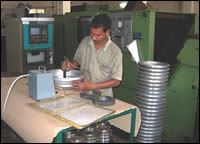
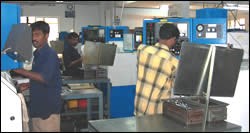
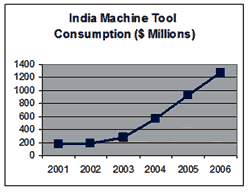
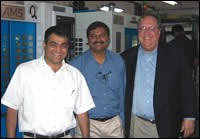

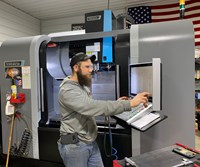


.png;maxWidth=300;quality=90)











